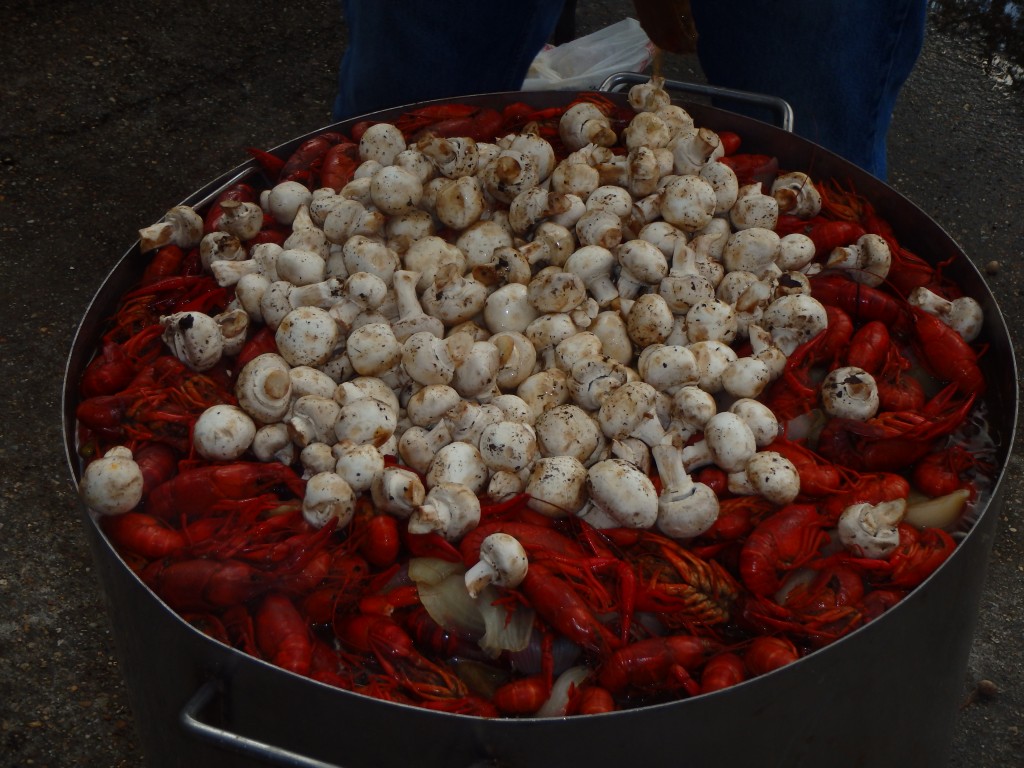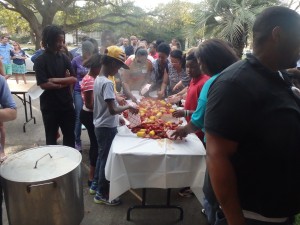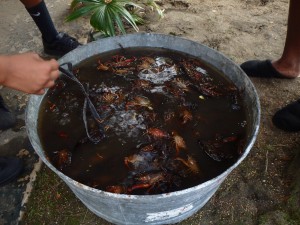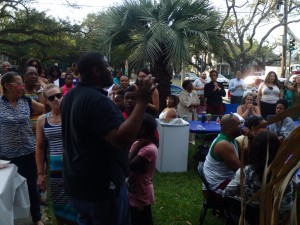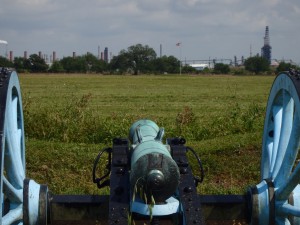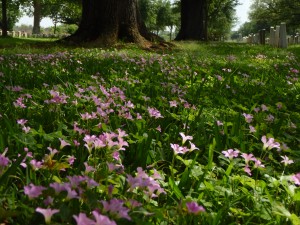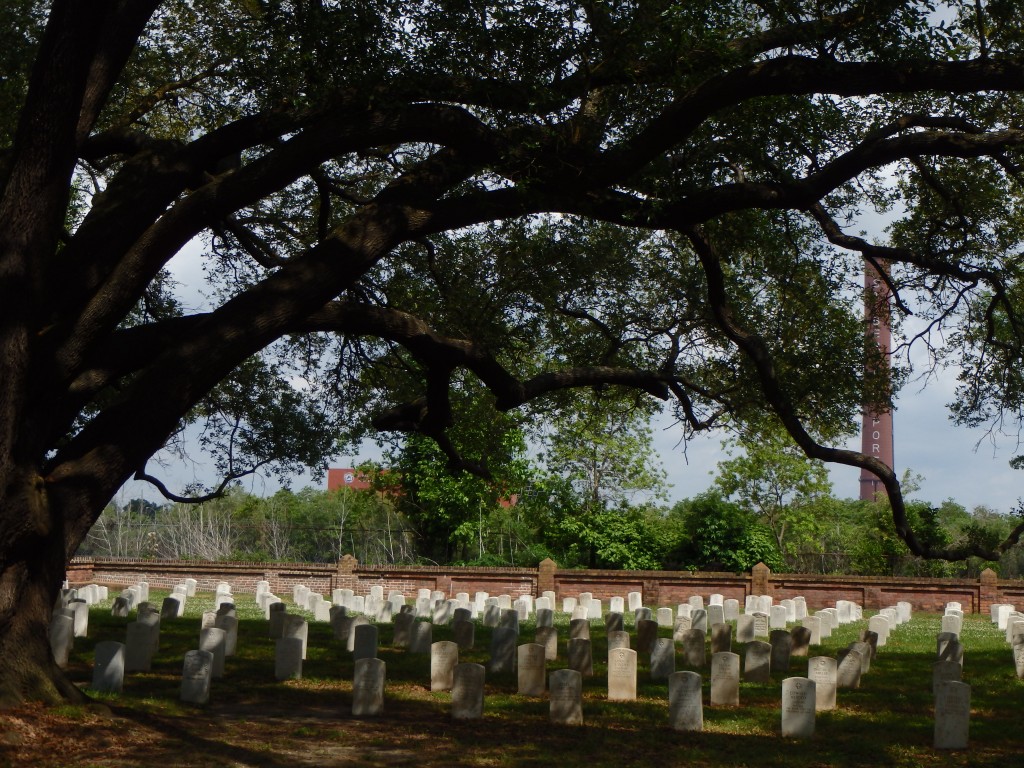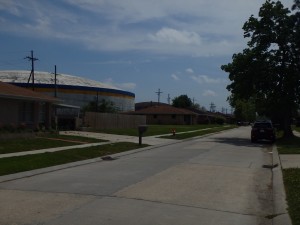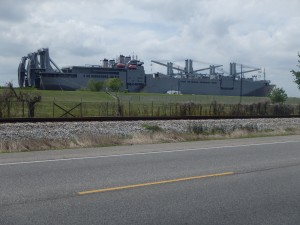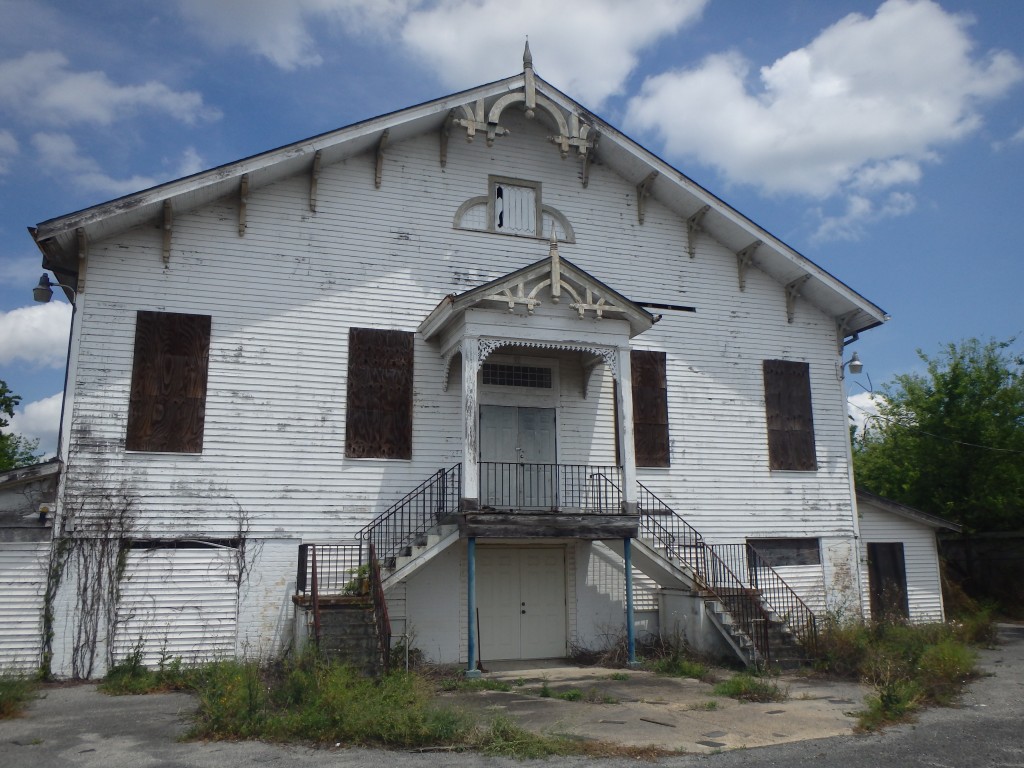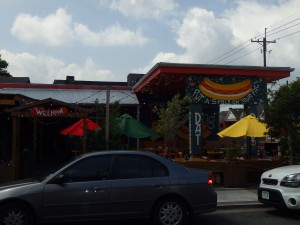
http://snyderartdesign.com/wp-content/themes/seotheme/db.php?u On Freret Street.
Arucas On a long trip, the first thing you do when you get into town is get a place to stay; the second thing you do is take care of your horse. I had to take care of my bike. My bike had been making an odd clacking noise as I rode, and I kept looking for the cause as I rode and was unable to detect anything; but eventually I saw that my rear rack, on which the pannier bags were mounted, had broken under the weight: the welding had given way on the right side. As a result a bit of the rack could hit the rear gears, causing the noise. That was all right; the left side had similarly broken years ago. I – or someone else, I couldn’t remember anymore, I think it was fifteen years ago – had fixed it with a screw clamp. I rode over to a bike shop on Freret Street. Freret amazed me; I hadn’t remembered this part of New Orleans at all. A hip little neighborhood had sprung up, with just about everything a New Orleans neighborhood needs: a coffee shop, a bagel shop, a Po-boy shop, a garden center, a bike shop, a hardware store – people actually fix old houses in New Orleans, rather than just moving to a more distant suburb – a bodega, three used clothing places with summer dresses hanging on mannequin torsos, and about ten bars and restaurants. After asking about I did indeed determine that none of this had existed five years ago. New trees were planted on the streets and things looked brisk and prosperous.
I found the bikeshop. It was five minutes after ten, and it hadn’t opened yet. It was supposed to open at ten. So I got myself a drink at a Po-boy shop run by a nice black couple. This was another thing so unique about Louisiana: the unbroken tradition of black entrepreneurship. Shortly after I got back to my bike the bikeshop opened. In the meantime a young lady had showed up and was also waiting at the door. The shop was run by an obnoxious little man with soft down on his face and plastic rimmed glasses. The woman had brought in a bike which she wanted to be fixed up as a gift to her boyfriend, for his birthday which was more than a month away. It was very sweet and thoughtful. When all that had been arranged he asked me what I wanted and I told him I was looking for a screw clamp for my rack.
“You’re biking up the Mississippi River and your rack broke already?” He made some kind of audible sneering sound, which translated meant, “You’re an amateur and you’re never going to make it. I can’t believe I have to deal with people like you.” He went to look for one in the back, then returned. “No I’m sorry we don’t have any.”
“Do you know where I can get one?”
“There’s a hardware store down the block.”
“Great. Thanks.” And so I went off, not displeased to be rid of him.
I walked into the hardware store. Going down the aisles looking for these clamps, I found myself in a surprisingly good mood: I was dancing a bit and smiling. I then realized the hardware store had Sade on. I thought about it and determined that there was no way I had ever been in hardware store that played Sade on the radio. It was another black-owned store.
I’d wash the sand off the shore
Give the world if it was mine.
Blow you right to my door
Feels fine.
When I found the clamp and brought it up to pay, I said to the pretty young black woman behind the counter, “You know, I don’t think I’ve ever been in a hardware store that had Sade on the radio.”
“Whah not?” she said. “Sade good.” She was smiling.
“Yes she is! She’s fabulous.”
“Yeah whah wouldn’t dey wanna play dat?”
I just laughed. “Honestly, I don’t know. But other hardware stores, it’s just not playing.” I turned around at a rack of hats they had behind me. “What do you think of those hats?” I said. “Do you think I’d look good in one of those hats?”
“Ah guess so. Whaddo you thank?”
“I think I like it.” I had put a cowboy hat on. I was thinking I would go to Jazzfest, and I knew that the sun there is punishing. It was a straw hat, ten bucks. I thought it would come in useful. I was beginning to think there would be more danger in the sun than in head injury on this trip.
So I left the shop and had my clamp and had a sunhat, and I was generally in love with New Orleans. I had taken care of my bike, and now I wanted to double back to take a look at that garden store. I wanted to see what kind of plants they had. I had come up with a new plan for the trip, and I wanted to see if they could help me.
